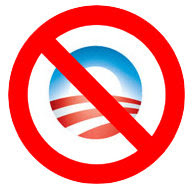This was an excellent article and worth reading- Thanks Jonah Goldberg
The government effectively owns General Motors and controls Chrysler, and the president is deciding what kind of cars they can make. Uncle Sam owns majority stakes in American International Group, Fannie Mae, Freddie Mac and controls large chunks of the banking industry. Also, President Obama wants government to take over the business of student loans. And he's pushing for nationalized health care. Meanwhile, his Environmental Protection Agency has ruled that it reserves the right to regulate any economic activity that has a "carbon footprint." Just last week, House Speaker Nancy Pelosi said climate change requires that "every aspect of our lives must be subjected to an inventory." Rep. Barney Frank, chair of the House Financial Services Committee, has his eye on regulating executive pay.Of course, nationalization of industry is only one kind of socialism; another approach is to simply redistribute the nation's income as economic planners see fit. But wait, Obama believes in that, too. That's why he said during the campaign that he wants to "spread the wealth" and that's why he did exactly that when he got elected. (He spread the debt, too.)
And yet, for conservatives to suggest in any way, shape or form that there's something "socialistic" about any of this is the cause of knee-slapping hilarity for liberal pundits and bloggers everywhere.
For instance, last month the Republican National Committee considered a resolution calling on the Democratic Party to rename itself the "Democrat Socialist Party." The resolution was killed by RNC Chairman Michael Steele in favor of the supposedly milder condemnation of the Democrats' "march toward socialism."
THE HOPE FOR SOCIALISM
The whole spectacle was just too funny for liberal observers. Robert Schlesinger, U.S. News & World Report's opinion editor, was a typical giggler. He chortled, "What's really both funny and scary about all of this is how seriously the fringe-nuts in the GOP take it."
Putting aside the funny and scary notion that it's "funny and scary" for political professionals to take weighty political issues seriously, there are some fundamental problems with all of this disdain. For starters, why do liberals routinely suggest, even hope, that Obama and the Democrats are leading us into an age of socialism, or social democracy or democratic socialism? (One source of confusion is that these terms are routinely used interchangeably.)
For instance, in a fawning interview with President Obama, Newsweek editor Jon Meacham mocks Obama's critics for considering Obama to be a "crypto-socialist." This, of course, would be the same Jon Meacham who last February co-authored a cover story with Newsweek's editor at large (and grandson of the six-time presidential candidate for the American Socialist Party) Evan Thomas titled -- wait for it -- "We Are All Socialists Now," in which they argued that the growth of government was making us like a "European," i.e. socialist, country.
Washington Post columnists Jim Hoagland (a centrist), E.J. Dionne (a liberal) and Harold Meyerson (very, very liberal) have all suggested that Obama intentionally or otherwise is putting us on the path to "social democracy." Left-wing blogger and Democratic activist Matthew Yglesias last fall hoped that the financial crisis offered a "real opportunity" for "massive socialism." Polling done by Rasmussen -- and touted by Meyerson -- shows that while Republicans favor "capitalism" over "socialism" by 11 to 1, Democrats favor capitalism by a mere 39 percent to 30 percent. So, again: Is it really crazy to think that there is a constituency for some flavor of socialism in the Democratic Party?
When the question is aimed at them like an accusation, liberals roll their eyes at such "paranoia." They say Obama is merely reviving "New Deal economics" to "save" or "reform" capitalism. But liberals themselves have long seen this approach as the best way to incrementally bring about a European-style, social democratic welfare state. As Arthur Schlesinger Jr. (Robert's father) wrote in 1947, "There seems no inherent obstacle to the gradual advance of socialism in the United States through a series of New Deals."
WHERE TO DRAW THE LINE
Part of the problem here is definitional. No mainstream liberal actually wants government to completely seize the means of production, and no mainstream conservative believes that there's no room for any government regulation or social insurance. Both sides believe in a "mixed economy" but disagree profoundly about where to draw the line. One definition of social democracy is the peaceful, democratic transition to socialism. A second is simply a large European welfare state where the state owns some, and guides the rest, of the economy. Many liberals yearn for the latter and say so often -- but fume when conservatives take them at their word.
Personally, I think socialism is the wrong word for all of this. "Corporatism" -- the economic doctrine of fascism -- fits better. Under corporatism, all the big players in the economy -- big business, unions, interest groups -- sit around the table with government at the head, hashing out what they think is best for everyone to the detriment of consumers, markets and entrepreneurs. But, take it from me, liberals are far more open to the argument that they're "crypto-socialists."
Thursday, June 4, 2009
Subscribe to:
Post Comments (Atom)

No comments:
Post a Comment